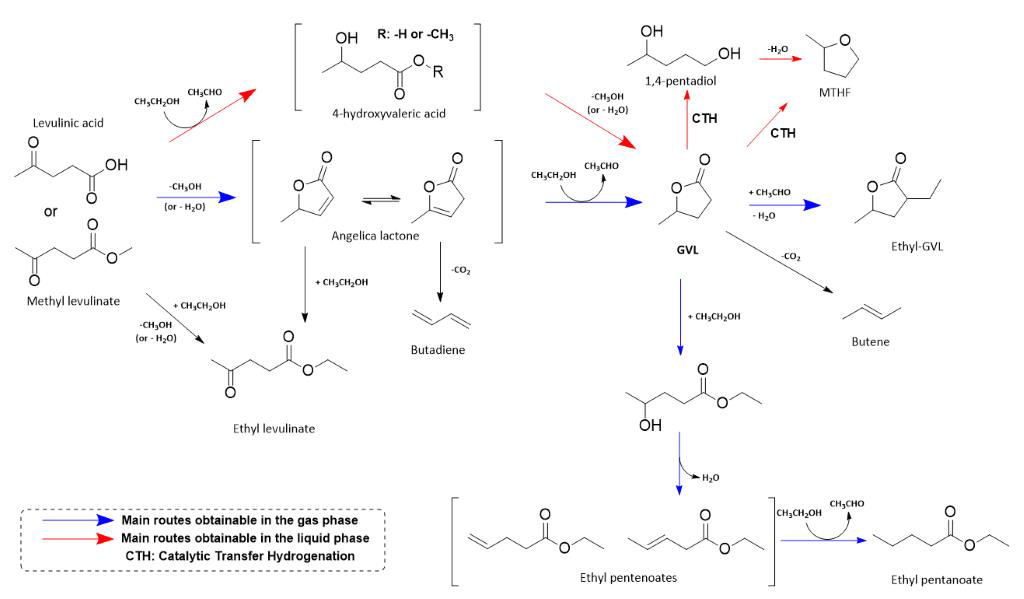WP3.1 Ketals
UniNa will study the synthesis of ketals from LA/LE to achieve the best reaction conditions, optimizing both the conversion and selectivity towards the selected ester in batch reactor, using either glycerol or1,2-dodecanediol. Acid commercial systems and the ad-hoc functionalized catalysts developed by all RUs will be tested and screened, to correlate, tune and optimize catalyst acidity and morphology properties with thecatalytic performances, finally to individuate the best catalyst. At the end of the optimization, the most promising catalysts will be employed for the development of the liquid phase continuous flow process and kineticstudies.
WP3.2 DPA
UniPi will study the catalytic conversion of LA to DPA in the presence of different phenols, optimizing the reaction in terms of yield, conversion and selectivity towards the desired p,p’-DPA isomer. The reaction will becarried out in batch mode in absence of solvent or alternatively in the presence of properly-selected organic solvents. Acid commercial systems and the ad-hoc functionalized catalysts prepared by all RUs will be employedand screened, to correlate, tune and optimize catalyst acidity and morphology properties with the catalytic performances. In addition to the fossil-based phenol, the natural-based phenols including catechol, resorcinol andsubstituted guaiacol will be taken into account, making the target product DPA of fully-renewable source. At the end of the optimization, the most promising catalysts will be sent to UniNa for the development of the liquidphase continuous flow process and kinetic studies.
WP3.3 GVL and consecutive reduction products
SCITEC-CNR will investigate the liquid phase CTH reaction of LA/LE using the ad-hoc functionalized catalystsprepared in synergy by all RUs. Based on the preliminary characterization (UniBo and the sameSCITEC-CNR), and in particular onthe acid-base composition, the most suitable catalysts will be chosen for the screening. The reactions will be carried out in a batch reactor, adopting a bio-alcohol acting both as hydrogendonor and solvent, under autogenic pressure. In particular, the reaction conditions will be optimized to minimize the alcohol amount. The design of new active, selective and stable catalysts will be achieved within aconcerted work involving all the RUs. In this phase, structure-activity relationships will be pursued. At the end of the optimization, the most promising materials will be sent to UniNa for the development of the liquid phasecontinuous flow process and kinetic studies.UniBo will study a complementary approach for the gas-phase continuous flow CTH of LA/LE to GVL-RP. In particular, the most promising ad-hoc functionalized catalytic materials developed in the previous step by allRUs and properly characterized by SCITEC-CNR and the same UniBo will be tested and optimized. To achieve this goal, a fixed-bed, tubular glass reactor will be used allowing the adoption of atmospheric pressure in awide range of operating temperature. The aim is to take advantage of the high temperature and low contact time over the catalyst to achieve high yield and selectivity toward GVL or other specific reduced compounds(such as valeric esters), limiting catalyst deactivation by working on catalyst design, in collaboration with allRUs and by optimizing the reaction conditions.


